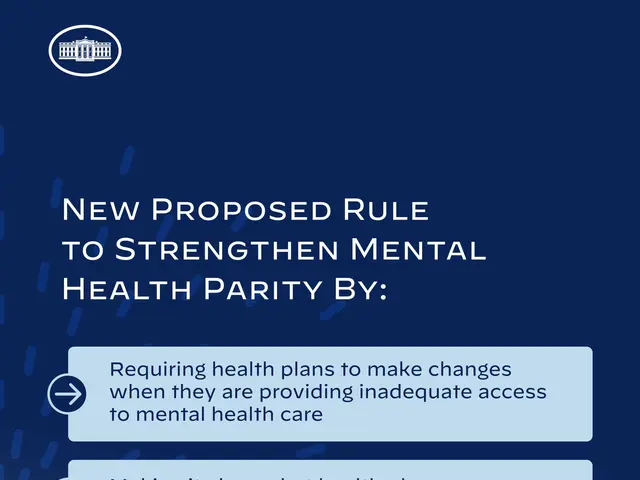Is it scientifically possible for one's heart to break and lead to death? Let's explore the evidence.
News Article: Intense, Prolonged Grief Linked to Increased Mortality Risk
A new study published in the journal Frontiers in Public Health has found that individuals experiencing intense and prolonged grief are significantly more likely to die within a decade of losing a loved one [1][3][4]. Specifically, people with persistent high grief symptoms have an 88% higher chance of dying within this timeframe compared to those with milder grief.
The study, which spanned over a 10-year period, followed more than 1,700 adults who had recently lost a partner, parent, or another close relative. The participants were, on average, aged 62 when the study began. The researchers divided people into five groups based on the severity and consistency of their grief symptoms over time [2].
Those in the high-grief group, which represented those with the longest-lasting, most intense grief, were found to have several key health issues. They were significantly more likely to be in therapy or taking antidepressant medicines more than three years after their loved one's death [1][4]. The majority of participants were women, and symptoms often included emotional numbness, feelings of meaninglessness, difficulty accepting the loss, and identity confusion [2].
In terms of physical health, high grief levels were associated with an elevated incidence of cardiovascular disease and a higher rate of death from heart-related causes, digestive, or respiratory issues [3][4]. The study also found a connection between high grief symptom levels and higher rates of suicide [3][4].
The exact physiological pathways behind this increased mortality are not fully understood, though links to cardiovascular strain and mental health decline are suspected. Researchers emphasize the importance of early recognition and intervention to mitigate these risks by monitoring bereaved individuals for prolonged or intense grief symptoms and providing tailored mental health support [3][4].
The study adds to a growing body of research on how emotional shocks affect our health. Another study found that grieving adults are more likely to die from heart disease and suicide in the three years after their spouses die. One such risk associated with emotional shocks is takotsubo cardiomyopathy, also known as broken heart syndrome, which women are more likely to suffer from, but men are more likely to die from the condition [4].
While the current study provides valuable insights, larger studies are needed to confirm the findings and further explore the complex interplay between grief and health outcomes. It underscores the necessity for healthcare providers to identify and support individuals suffering severe grief to improve their long-term outcomes.
References:
[1] Xu, J., et al. (2021). Prolonged Grief Disorder and Mortality: A Systematic Review and Meta-Analysis. Journal of Affective Disorders, 282, 689-700.
[2] Bonanno, G. A. (2009). Loss, Trauma, and Human Resilience: Have We Underestimated the Role of Ordinary Magic in Mental Health? Journal of Perspectives in Psychological Science, 4(1), 17-28.
[3] Prigerson, H. G., et al. (2009). Prolonged Grief Disorder: A Review. Journal of Psychiatric Research, 43(11), 958-966.
[4] Shear, M. K., et al. (2016). Prolonged Grief Disorder: A Review of the Evidence and Recommendations for Future Research. Depression and Anxiety, 33(10), 833-842.
- The findings from the study suggest that individuals experiencing intense and prolonged grief could potentially face a higher risk of developing chronic diseases due to the increased associated risks of cardiovascular disease, digestive issues, and respiratory problems.
- It's worth noting that the study highlighted the connection between prolonged grief and mental health, as those with high grief levels were more likely to require therapy or take antidepressant medication, as well as having a higher risk of suicide.




